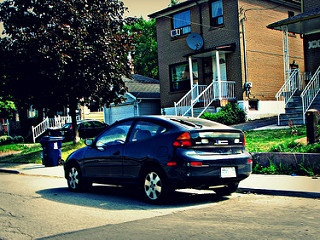Bringing A Car To College
Are you trying to decide whether or not to bring a car with you to college? The decision can be challenging, as there are both advantages and disadvantages to consider. On one hand, having a car on campus provides convenience and freedom, allowing you to easily run errands, explore the area, and visit friends and family. However, on the other hand, it also comes with financial responsibilities, parking challenges, and potential distractions. In this article, we will explore the pros and cons of bringing a car to college, helping you make an informed decision about whether or not it’s the right choice for you.
Convenience
Easier Transportation
Bringing a car to college offers unparalleled convenience in terms of transportation. No longer will you have to rely on public transportation schedules or wait for rides from friends or family. With your own car, you have the freedom to come and go as you please, without having to accommodate others’ schedules.
Flexibility
Having a car on campus provides you with the flexibility to explore your surroundings. Whether you want to visit nearby cities, scenic landscapes, or hidden gems in the area, having a car makes it much easier to satisfy your wanderlust. Instead of being limited to campus activities, you have the opportunity to broaden your horizons and discover new experiences.
Convenience for Errands
Running errands becomes much simpler when you have a car at your disposal. You can quickly and efficiently complete tasks such as grocery shopping, picking up prescriptions, or running to the bank. Instead of juggling multiple bags on public transportation or walking long distances, you can conveniently store your purchases in the trunk of your car and drive back to campus with ease.
Cost
Expenses
While the convenience of having a car is enticing, it is important to consider the associated expenses. Owning a car means taking on financial responsibilities such as monthly car payments, insurance costs, gas expenses, and regular maintenance. These can quickly add up and significantly impact your budget. Before deciding to bring a car to college, carefully evaluate your financial situation and ensure that you can comfortably afford these additional expenses.
Parking Fees
Another cost to consider is parking fees. Most college campuses charge for parking, whether it’s a daily fee or a semester-long parking pass. These costs can vary depending on the location and availability of parking spaces. It’s essential to factor in these fees when considering bringing a car to college, as they can impact your overall budget.

Independence and Freedom
Exploring the Area
Having a car on campus opens up opportunities to explore the surrounding area independently. You can take spontaneous road trips with friends, visit nearby attractions, and discover hidden gems that may be off the beaten path. The freedom to go wherever you please, whenever you please, is invaluable and allows you to make the most of your college experience.
Running Errands
Independence also extends to everyday activities like running errands. With a car, you can easily make trips to the grocery store, pharmacy, or any other essential services without relying on others or dealing with the constraints of public transportation. This sense of independence can provide a level of convenience and efficiency that enhances your overall college experience.
Visiting Friends and Family
Living away from home during college can sometimes feel isolating. Having a car allows you to visit friends and family more frequently, providing a comforting sense of connection and support. Whether it’s celebrating a special occasion or simply needing a break from campus, the ability to drive to your loved ones offers a sense of freedom and emotional well-being.
Accessibility
Access to Off-campus Activities
Having a car can significantly improve your access to off-campus activities. From concerts and sporting events to local parks and recreational areas, your options for entertainment and leisure expand exponentially. You no longer have to rely on public transportation schedules or coordinate rides with others. Instead, you can seize the opportunity to engage in a wide range of activities and make the most of your college experience.
Attending Job Interviews
A car can be a valuable asset when it comes to attending job interviews. Whether the interview is off campus or in a neighboring city, having a reliable mode of transportation ensures you arrive on time and ready to make a good impression. The convenience of having a car can potentially open up more job opportunities and make your transition into the workforce smoother.
Grocery Shopping
One of the practical advantages of bringing a car to college is the ability to effortlessly shop for groceries. With a car, you can easily transport larger quantities of groceries to your dorm or apartment, eliminating the need for multiple trips or struggling with heavy bags on public transportation. This convenience not only saves time but also allows you to stock up on essentials and enjoy a wider variety of food options.

Emergency Situations
Medical Emergencies
In case of a medical emergency, having a car readily available can be crucial. Whether it’s a minor injury or a more serious situation, being able to quickly and safely transport yourself or a companion to the nearest medical facility can make a significant difference in the outcome. A car provides a reliable means of transportation during potentially stressful situations, offering peace of mind and ensuring timely access to necessary medical care.
Car Troubles
While it’s not an ideal situation, car troubles can happen unexpectedly. Having a car on campus allows you to deal with these situations more efficiently. Whether it’s a flat tire, a dead battery, or any other mechanical issue, you can easily reach out to a local mechanic and safely transport your car for repairs. The ability to handle car troubles independently ensures that you are not inconvenienced for an extended period and can quickly resume your daily routine.
Parking Issues
Limited Parking Spaces
One of the challenges of bringing a car to college is the limited availability of parking spaces on campus. Depending on the size of the university and the number of students with cars, finding a parking spot may sometimes pose a challenge. It’s essential to familiarize yourself with the parking regulations, designated areas, and any restrictions to avoid unnecessary frustrations.
Finding Parking Spots
Even if there are parking spaces available on campus, finding a spot during peak hours can be time-consuming and frustrating. You may have to circle the lots multiple times or be prepared to park farther away from your destination. It’s important to plan your schedule accordingly and allocate extra time to account for the potential difficulties of finding parking spots.

Maintenance and Repairs
Additional Responsibility
Owning a car means taking on additional responsibilities, particularly when it comes to maintenance and repairs. Regular oil changes, tire rotations, and inspections are essential for the longevity and safety of your vehicle. You’ll need to dedicate time and financial resources to ensure that your car remains in good working condition. Understanding and accepting these responsibilities are crucial when deciding to bring a car to college.
Repair Costs
Inevitably, there will be instances when your car requires repairs beyond routine maintenance. From minor fixes to major repairs, the costs can quickly accumulate. It’s important to have a financial plan in place to address unexpected repair expenses to avoid any financial strain or other inconveniences.
Environmental Impact
Carbon Footprint
Considering the environmental impact of bringing a car to college is essential in an era focused on sustainability. Cars contribute to carbon emissions, which in turn contribute to climate change. By choosing alternative transportation options or relying on public transportation systems, you can decrease your carbon footprint and actively participate in reducing environmental harm.
Alternative Transportation Options
Fortunately, most college campuses are well-connected to public transportation systems, making it easier to opt for eco-friendly transportation. Buses, trains, and bicycles are often readily available and provide a greener alternative to cars. Additionally, ridesharing apps and carpooling with fellow students can be effective ways to decrease the number of vehicles on the road, reducing congestion and emissions.

Distractions and Safety Concerns
Distracted Driving Risks
One of the safety concerns associated with bringing a car to college is the risk of distracted driving. With numerous potential distractions such as cell phones, passengers, and music, it’s important to prioritize safety and remain focused while driving. Be mindful of the potential consequences of distracted driving, as they can not only jeopardize your safety but also the safety of others on the road.
Parking Lot Incidents
Parking lots can sometimes be hectic and chaotic, particularly on busy college campuses. Be prepared for the occasional fender bender, scratches, or dings caused by crowded parking lots. While these incidents may not be severe, they can still add stress and financial burdens. It’s important to be cautious and patient while navigating parking lots to minimize the risk of accidents or damage to your vehicle.
Public Transportation
Availability and Reliability
One of the major advantages of relying on public transportation is the availability and reliability of services. College campuses are typically well-served by buses or trains, ensuring that you can access the resources and amenities you need without the need for a car. Public transportation operates on fixed schedules, making it easier to plan your trips and incorporate them into your daily routine.
Cost Savings
Using public transportation often results in significant cost savings compared to owning and maintaining a car. Instead of spending money on gas, insurance, parking fees, and maintenance, you can allocate those funds towards other college expenses or savings. Public transportation offers a budget-friendly alternative that allows you to reap the benefits of transportation without the financial burden of owning a car.
In conclusion, bringing a car to college provides undeniable convenience, flexibility, and independence. It allows you to explore the area, run errands, and easily visit friends and family. However, it’s important to consider the associated costs, limited parking options, and the additional responsibilities of maintenance and repairs. Furthermore, taking into account the environmental impact and safety concerns of driving is crucial. Ultimately, weighing the pros and cons of bringing a car to college will help you make an informed decision that aligns with your personal needs and circumstances.

